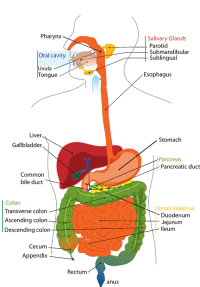The Dietary Requirements That Determine Our Ideal Foods
Natural foods for humans must satisfy the following criteria and nutrient needs:Foods Must Be Non-Toxic
First and foremost the food must be toxin-free. None of the compounds and substances in the food should present a digestive problem. The body must have enzymes adapted to handle every substance within the food. Toxic substances are those which the body cannot use as food. Substances that the body cannot use but which it cannot prevent absorption of (as in alcohol, cholesterol, drugs, etc.) are toxic.
Foods Must Be Edible in the Raw State
The food must be edible in its living or raw state as nature delivers it up for us as food. If we cannot eat our fill of a food in its raw state with relish and make a meal of it that meets all or most of our nutrient needs, then it is not a natural food for humans and should be shunned in favor of foods that do.
Foods Must Have Sensory Appeal
Foods of our adaptation have great sensory appeal. They are a delight to the eye, their aromas tantalize the sense of smell and their substance is an unqualified gustatory delight.
Foods Must Be Digested Easily When Eaten Alone or Properly Combined
Foods of human adaptation undergo practically no digestion in the stomach and humans can absorb the chyme and chyle of their natural foods with very little chemical elaboration in the stomach and small intestine.
Foods Must Be Digested Efficiently
While ease of digestion necessarily also implies efficiency of digestion, this entry relates to another aspect of efficiency. That which is eaten represents a certain amount of energy potential. To derive this energy from food, the body must expend energy to obtain it. The ratio of energy obtained relative to energy expenditure determines the ratio of efficiency.
For instance, we spend a mere 30 calories of energy in the process of appropriation, chewing, absorbing, transporting and assimilating 400 calories of watermelon. On the other hand, we may spend 280 calories in the digesting meat to obtain 400 calories. The efficiency with which we handle foods with monosaccharides versus the inefficiency with which we handle protein foods indicates most emphatically the types of food to which we are naturally adapted.
In processing food for use, we expend two kinds of energy. We expend metabolic energy, which is the chemical and mechanical energies expended, and we expend nerve energy. For instance, we use very little nerve energy in digesting watermelon. But, in processing foods to which we are not biologically adapted, an enormous expenditure of nerve energy is occasioned. Meats may cause nervous exhaustion due to the body’s frenzied activities in dealing with proteins, uric acids and other toxic substances in them. Though we may feel exhilarated while expending nervous energy just as we feel “a pick-me-up” when taking coffee (which really drains nerve energy), the stimulation occasioned by eating unsuitable foods such as meat is an indication of the inefficiency with which the body handles it.
Foods Must Have Protein Adequacy
Our natural foods must supply us with our protein requirements of about 25 grams daily. The less protein eaten down to the point of adequacy, the better. Protein is taken into the body for replenishing amino acid components needed for a multitude of applications. There are three things you should keep in mind relative to protein digestion:
- the body can recycle up to two-thirds of its proteinacious wastes to meet its needs;
- protein digestion requires an expenditure of energy equivalent to about 70% of its total caloric content; and
- neutralization and elimination of the toxins of protein degeneration (putrefaction) uses up vast amounts of nerve energy which, though stimulating at the time, exhausts and debilitates the body.
Foods Must Be Adequate in Vitamin Content
Some 30 vitamins have been determined to be needed in various quantities in the human diet. The vitamins must be in the diet in an organic context with other nutrients to be useful.
Foods Must Be Adequate in Mineral Salts
Our only source of the minerals of life is from food. Only in food are they in the organic context which we can use. Under no circumstances can the body make use of inorganic minerals as might be ingested with water, supplements or powdered rock (as with dolomite).
Natural Foods Must Supply Our Needs for Essential Fatty Acids
Those food factors which the body requires but cannot itself synthesize are said to be essential. The essential fatty acids are linoleic, linolenic and arachidonic. Essential fatty acids are unsaturated fats. They occur in practically every fruit, nut, seed and vegetable in ample quantities to supply human needs.
Natural Foods Must Supply Our Needs for Caloric Values
The energy we expend must be derived from our food intake. The foods which most efficiently and easily supply our caloric needs are those with high monosaccharide content. Sweet fruits are at the top of the list in meeting these requisites.
Natural Foods Are Water-Sufficient to Meet Our Needs in Most Cases
Foods to which we are biologically adapted normally meet all our water needs. This is obvious, for we have no water-drinking faculties other than suction which is necessary for swallowing food. Primates normally do not drink water.
Natural Foods Are Alkaline in Metabolic Reaction
We require foods that are alkaline- or base-forming when metabolized. Almost every food of our adaptation is base-forming, even if it has an acid pH in its natural state. Should we eat any acid-forming foods, such as nuts, they should be offset at the same meal with alkaline-forming foods such as green leaves or other vegetable fare.
These are the criteria or requirements for foods that are natural to the human dietary.
--------
In the second part of the article we will see which kind of foods meet these requirements.













